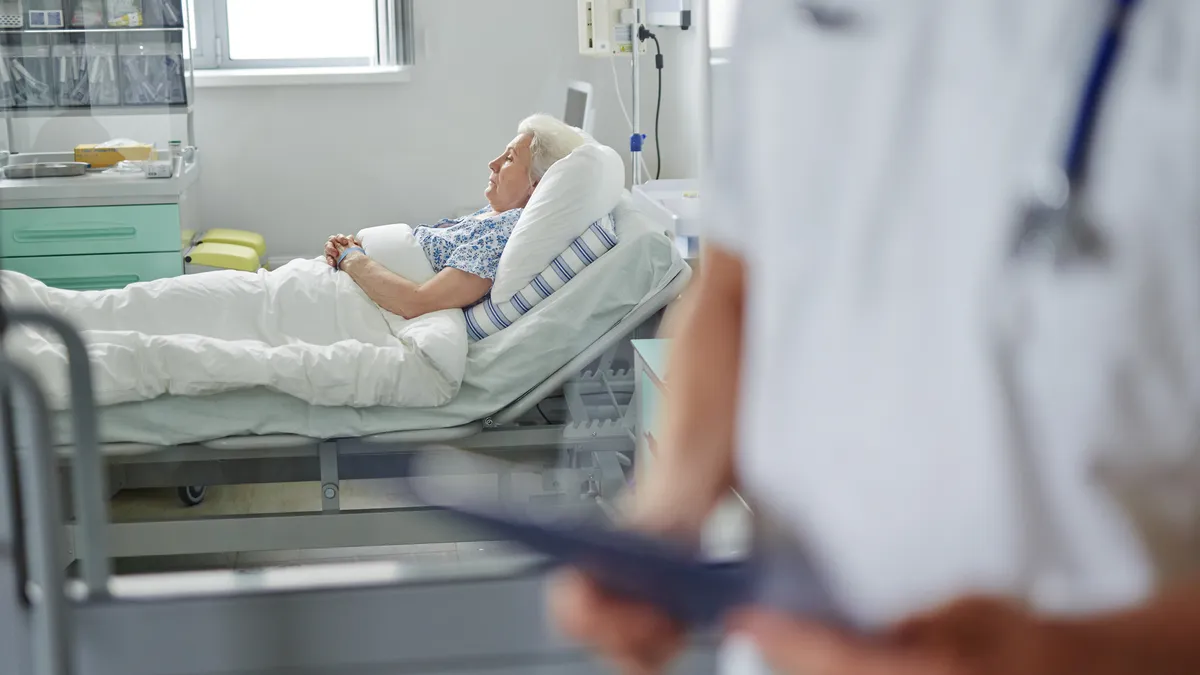Dive Brief:
-
Cardiva Medical's femoral access closure system has outperformed manual compression in a pivotal trial of about 200 patients who underwent arrhythmia ablation procedures, meeting its primary endpoint in a study presented this weekend at the American Heart Association's meeting in Chicago.
-
Patients treated with the system, Vascade MVP, were able to walk significantly sooner after the procedure than their peers who underwent manual compression and 58% fewer patients used opioid medication after their procedure.
-
The publication of the findings precedes an anticipated FDA decision about the premarket approval (PMA) of Vascade MVP.
Dive Insight:
Catheter ablation is the go-to treatment option for patients with rapid and irregular heartbeats that cannot be controlled by medicines. The surgeon inserts electrode catheters through femoral venous access sites and along blood vessels to the heart, where they emit radiofrequency energy to destroy the heart muscle cells that caused the arrhythmia.
Healthcare professionals have used manual compression to stop the flow of blood from access sites for more than 60 years. The healthcare professional compresses the blood vessel using their fingers. Around 20 minutes later, the bleeding stops and the patient spends six or more hours recovering.
Vascular closure devices designed to cut these times have been available for more than 20 years. Existing products include Abbott's StarClose and Cordis' ExoSeal. However, the fact that manual compression is simple, safe and cheap, coupled to the mixed performance of early devices in head-to-head comparisons, means the old approach remains in widespread use.
Cardiva created Vascade MVP to displace the time-tested technique. The device delivers a collagen patch to the hole in the blood vessel. Once in place, the patch is designed to expand to fill the hole and, due to the properties of collagen, accelerate coagulation.
Clinical data presented at the American Heart Association 2018 Scientific Sessions suggest the device performs as Cardiva hoped. The trial enrolled 204 patients who had three or four mid-bore femoral venous access sites as a result of undergoing arrhythmia ablation. Half the patients were randomized to be treated with Vascade MVP, while the rest underwent manual compression.
Patients in the Vascade MVP arm were walking 2.2 hours after vessel closure, compared to 6.1 hours in the manual compression cohort, resulting in the trial hitting its primary endpoint.
“Patients with previous procedures noticed a significant improvement in their level of comfort due to the much shorter bed rest time, and the time saved overall enabled us to implement a new more efficient workflow in the hospital," Andrea Natale, one of the principal investigators on the trial, said in a statement.
Vascade MVP beat manual compression against a range of secondary endpoints, too. People treated with the closure device were eligible for discharge in around three hours. The mean discharge time in the manual compression cohort was more than six hours. Also, an ad hoc analysis found 58% fewer patients in the Vascade MVP cohort used opioid-class pain drugs following the procedure.
Cardiva is now waiting to hear from FDA while working to generate results from two other Vascade MVP studies into safety and hospital economics. The company has filed a PMA application with agency that would clear it to start marketing the system in the U.S.










